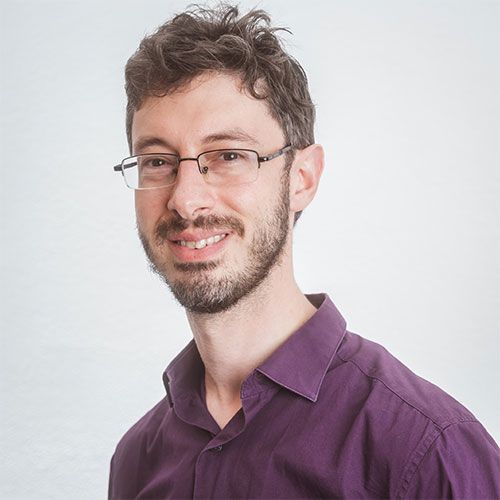For the past decade, as part of his role, Rabbi Lev Meirowitz Nelson has run the summer fellowship for rabbinical and cantorial students at T’ruah, an organization that trains and mobilizes rabbis and cantors to be social justice leaders. The nine-week summer program, which combines text study and an internship at a human rights organization, has always been successful and highly impactful for the participants, but Lev felt like something in the fellowship’s programming lacked cohesion.
“There were so many people who I wanted these students to meet, and so many skills that I wanted them to learn, that the program always felt like a smorgasbord. It lacked a specific direction,” he said.
Building a trajectory
Last June, Lev completed M²’s Senior Educators Cohort, which provides outstanding educators from across the globe with the theories and practices that enable them to master the craft of experiential Jewish education. He then immediately applied his learnings — from values-based education to planning with more intentionality — to the T’ruah fellowship.
T’ruah’s summer fellowship has four goals: ensure participants have a command of social justice Torah, build social justice skills, deepen relationships with other fellows and social justice leaders, and foster a self-identity as a social justice rabbi. In previous years, Rabbi Lev had placed the programming emphasis on the first three goals, assuming the last goal, self-identifying as a social justice rabbi, would come naturally.
But this past summer, based on M²’s values-based education, he flipped the program’s focus to make identifying as a social justice rabbi the primary goal.
“We structured it around this single value for the whole summer, and it really provided a framework for all of the other sessions. Suddenly, it felt like each week built on the previous week, and students could look back and see the trajectory of the journey. From our evaluations, the participants also said it was really effective, so I can already see the impact,” he said.
Putting values first
Lev is also using the M² methodology to restructure the pre-conference J Street/ T’ruah Shabbaton held this past December, organizing the entire Shabbaton, held this past December, organizing the entire Shabbaton around a specific value. “Before SEC, I would organize events around teachers who were available or lessons I thought students should learn,” he said. Teachers could teach about any subject they wanted, and discussions tended to be free-wheeling, based on questions Lev and the student co-chairs found interesting.
Now, he’s taking a much more organized approach, starting with a certain value that helps shape the planning and schedule of each session. Even the discussions he leads have more structure. One of the most impactful things Lev learned at M² was the four stages of reflection, and how he can utilize those stages intentionally to help his students reflect not just on what they learned, but how they will apply that information in the future.
“When they actively think about how they will apply this learning to future practices, it sticks with them and makes an impact down the line,” he said.
The impact of pedagogical language
Lev has worked in Jewish education since his ordination from Hebrew College in 2013, even though he has never studied education formally. So, for him, M² was an opportunity to understand the theories behind effective educational practices.
“At M², we focused on what good educators already do — things they learned from watching other teachers or figured out on their own — and put theory, structure, and language behind those actions so that we can implement them in a more systematic and self-aware way,” he said. “Having that language, structure, and format allows me to plan with a greater and more intentional perspective.”
He has also been able to apply the M² methodology in smaller ways, in the congregation he serves in New York City.
“Now, when I end a text study, I ask people if they’d like to share a way their experiences with a certain holiday or tradition have changed as a result of the text we just studied, and that’s the type of question I learned from M²,” he said. “Before, I would have just said, okay, great discussion. But now I have the tools to ask people to reflect a little deeper and see how they’re going to apply the lessons in their lives. And that’s really what brings impact and change.”
Rabbi Lev Meirowitz Nelson is Director of Leadership and Learning at T’ruah: The Rabbinic Call for Human Rights, as well as Director of T’ruah’s Emor Institute. He was ordained in 2013 from Hebrew College, where he was a Wexner Graduate Fellow. In 2017, Lev was honored by the Covenant Foundation with a Pomegranate Prize, which recognizes early-career Jewish educators. Before attending rabbinical school, Lev taught fifth grade at the Solomon Schechter School of Manhattan for three years and worked for many summers at URJ Eisner Camp. He holds an AB in Geology from Brown University. Lev, his wife Eliana, and their three kids live in the Brooklyn neighborhood of Kensington.
